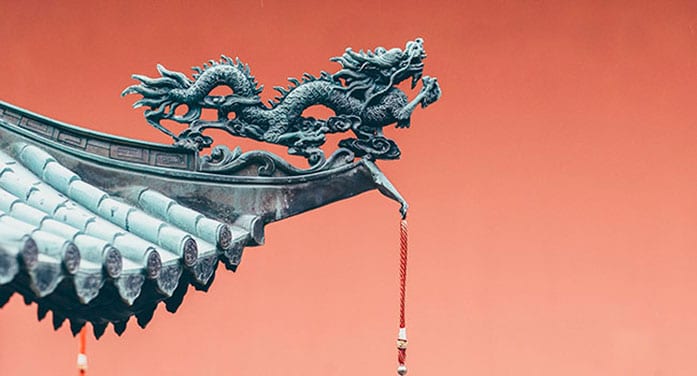 The vote by Canada’s Parliament to declare the actions of the Chinese government a genocide against the Uyghur people highlights the growing discordance between Western democracies and the increasingly repressive and aggressive Chinese regime.
The vote by Canada’s Parliament to declare the actions of the Chinese government a genocide against the Uyghur people highlights the growing discordance between Western democracies and the increasingly repressive and aggressive Chinese regime.
The Chinese government also engages in cultural repression, surveillance or discrimination against its Tibetan, Mongolian and Korean minorities.
China has benefited immensely from the open trade, travel and investment system created and nurtured since the Second World War, and which it gradually joined starting about 40 years ago.
However, China engages in behaviour that’s counter to the spirit and sometimes the letter of law of the treaties and organizations of which it is party.
As a member of the United Nations, China is required to respect the territorial integrity of other nations. Yet it has launched naval incursions into Japanese, Korean, Vietnamese, Philippine and Taiwanese waters. And it has built permanent military bases in the South China Sea, which it has claimed largely as its own, defying global rulings. It has rammed foreign vessels and otherwise engaged in hostilities in these naval adventures. Its fishing vessels have poached in neighbours’ waters.
It has also arrested foreign nationals and held them with little outside contact or counsel. That includes two Canadians, still imprisoned after two years on bogus espionage charges.
FROM THE ARCHIVES: When will Canada start to stand up to China? by Andrew Pickford and Jeffrey Collins
China has also violated a treaty with the United Kingdom granting Hong Kong autonomy in domestic affairs until 2047. It has now taken control of Hong Kong.
It has invaded India’s territory and assaulted its troops in Ladakh in the northwestern Himalayas, Sikkim in the central Himalayas, in Arunachal Pradesh and in a border area with Bhutan.
It has tried to insert itself into the Arctic Council, although it’s not an Arctic nation. It uses the Paris climate accord to its advantage: it doesn’t have to cut greenhouse gas emissions until 2035, unlike countries like Canada and the United States. China is building one large coal-fired power station weekly.
It also ties other nations, poor or developed, to it with onerous debt-financed infrastructure projects in its Belt and Road Initiative.
China requires foreign corporations doing business with it to enter into joint ventures that transfer intellectual property to local firms. It conducts industrial and scientific espionage.
It has compelled foreign companies and organizations to kowtow to it on Hong Kong, Xinjiang, Tibet and other matters. It fosters hostility among its citizens to Western nations, its neighbours and others who don’t acquiesce.
China uses trade and investment as a weapon. It punished Canada for arresting Huawei executive Meng Wanzhou, incarcerating two blameless Canadians and impeding the import of Canadian canola, meat and other products.
It did similar things to Australia when that nation suggested an independent investigation into the origins of the COVID-19 pandemic. China’s actions to hide evidence and silence doctors are contrary to international expectations of transparency, accountability and responsibility.
FROM THE ARCHIVES: Uyghur no-show symbolic of Trudeau’s hypocrisy, incompetence by Kaveh Shahrooz
China has also used trade as a weapon against South Korea and Japan; the former when it dared to install anti-missile defences against the hostile and volatile North Korean regime and the latter when it dared to defend against Chinese incursions in its East China Sea territories.
Some rare elements mined and refined in China are not easily found elsewhere. They are crucial in many products vital to modern life: electronics, solar panels, fibre optics, wind turbines, batteries, LEDs, computers, televisions, cellphones, electric motors and defence products, among others.
Conscious of this vulnerability, the U.S. and Canadian governments are promoting exploration and development of these minerals elsewhere, a complex and expensive undertaking.
Many large corporations have become dependent on investment, trade and production in China, and access to its large consumer and industrial markets. The huge facilities operated by Apple, Tesla and others could be held hostage in trade or diplomatic standoffs with China.
The American government is attempting to lure more sensitive technological production to the United States. It has also begun forbidding the export or sharing of cutting-edge hardware and software with China. But some of those horses have already left the barn.
Should there be a major standoff with China, Western nations or the Chinese regime could impose trade or investment embargoes or even freeze assets. China could also at any time reassert its socialist mission to control property.
Western governments need to be fully aware of the potential for escalating disputes with China. China doesn’t feel confined by international norms or laws, and has great scope in the damage it can do. Investors, businesses, retailers, consumers, importers and exporters should be aware of these risks and limit their exposure to reduce the potential harm of a decoupling from China.
While full conflict with China isn’t inevitable, the current regime seems determined to test the limits of what it can extract and extort from the rest of the world. The leadership wants to remake the rest of the globe in its illiberal mould and brooks no opposition.
It may not be possible to interact in confidence with China commercially, financially, legally or otherwise until it changes its political strategy and philosophy. Wariness and resolve are crucial; so is less reliance on markets, products or services from an increasingly adversarial and very strong nation.
The Chinese government has apparently decided to dominate any and all other nations, seeking submission on their terms. It’s up to free nations and free peoples to resist and find alternatives. It will be difficult and costly, but it’s necessary to preserve cherished values, at home and abroad.
Dependence on an unreliable and adversarial nation, whose leaders have principles and aims antithetical to our own, is dangerous and foolhardy. Inaction by Western democracies to increasing aggression by dictatorships prior to the Second World War nearly allowed those horrific regimes to conquer the globe.
Early intervention requires strengthening economic, industrial, technological and military capabilities. It also means development of alternatives to trade and investment. Wilful ignorance is no longer a viable strategy.
Refusal to co-operate in one’s own domination may be unpleasant, but it’s the only way to deal with bullies. Sadly, defiance and even force are the only things that work in such circumstances.
Ian Madsen is a senior policy analyst with the Frontier Centre for Public Policy.
Ian is one of our Thought Leaders. For interview requests, click here.
The views, opinions and positions expressed by columnists and contributors are the authors’ alone. They do not inherently or expressly reflect the views, opinions and/or positions of our publication.


